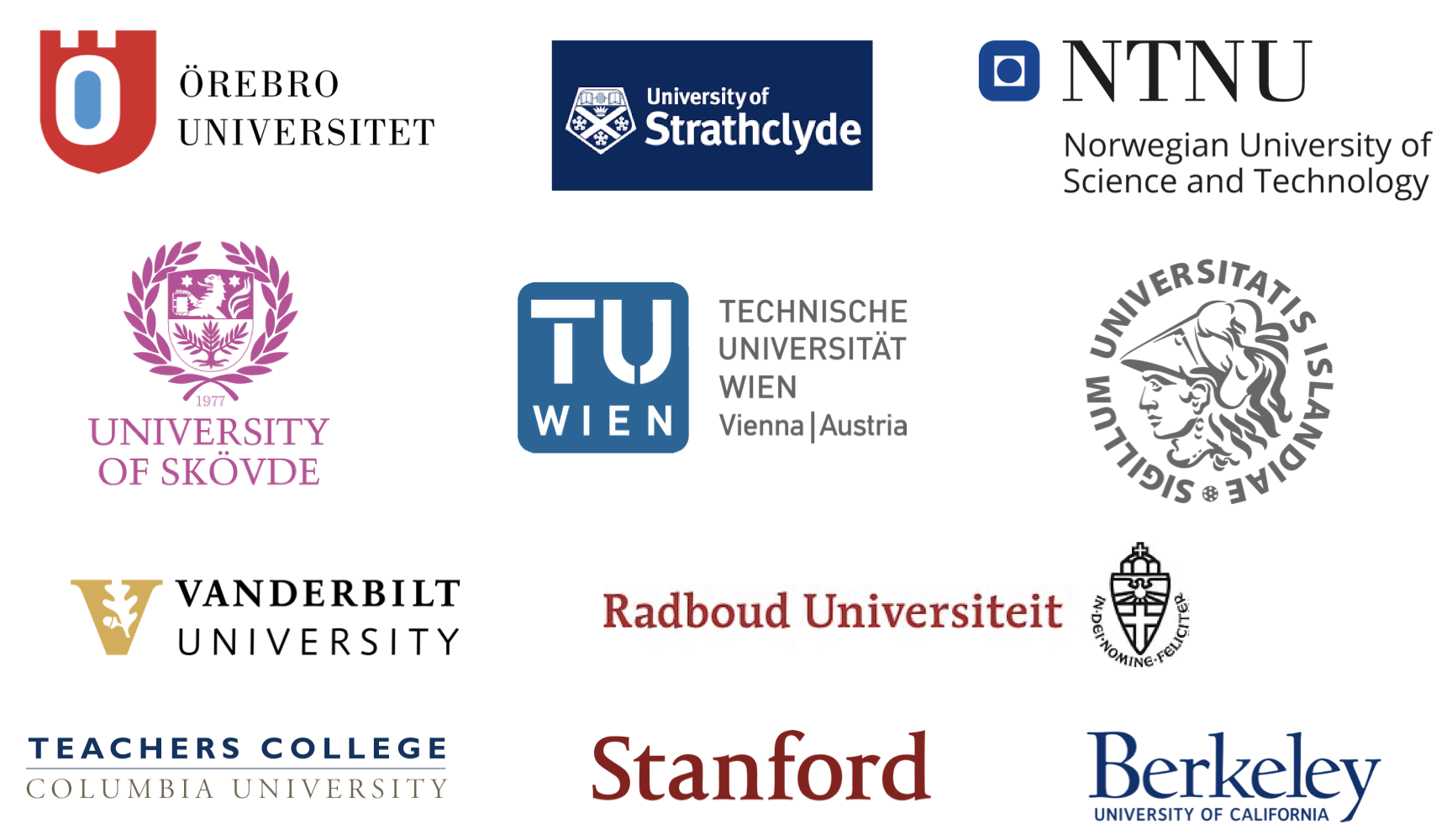INSTITUTE FACULTY
Austria (Vienna University of Technology) \ Iceland (University of Iceland) \ Netherlands (Radbound University) \ Norway (Norwegian University of Science and Technology) \ Sweden (Örebro University. University of Skövde.) \ United Kingdom (Imperial College London. University of Strathclyde.) \ United States (UC Berkeley. Stanford University, and Columbia University. Vanderbilt University.)
Prof. Mehul Bhatt
Örebro University, SWEDEN /
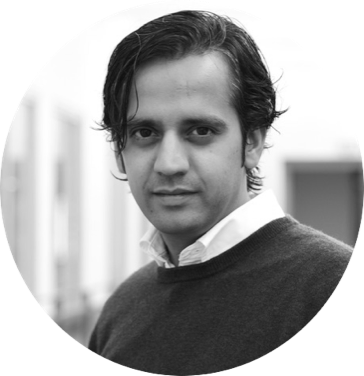 Mehul Bhatt is Professor within the School of Science and Technology at Orebro University (Sweden). His basic research focusses on formal, cognitive, and computational
foundations for AI technologies with a principal emphasis on knowledge representation, semantics, integration of commonsense reasoning & learning, explainability,
and spatial representation and reasoning. Visuospatial cognition and computation has been an area of intense activity from the viewpoint of interdisciplinary
research. His research in Spatial Cognition and AI particularly emphasises the study of human-behaviour (embodied multimodal interaction)
in naturalistic settings as a principal means of AI technology driven human-centred cognitive assistance in planning, decision-making, design situations
requiring an interplay of commonsense, creative, and specialist visuospatial thinking. Our lab has a track-record of in developing cognitive assistive
technologies and cognitive interaction systems —with a special emphasis on AI-Driven Cognitive Interaction and Design Technologies— in application
contexts where human-centred engineering and human-in-the-loop automation are critical, for instance: autonomous systems (i.e., high-level cognitive interpretation,
interaction and control); AI-driven architecture and built environment design; communications and media design technologies
(i.e., multimodal perception and synthesis, visuo-auditory media design)
/ (Research Statement > Artificial and Human Intelligence)
Mehul Bhatt is Professor within the School of Science and Technology at Orebro University (Sweden). His basic research focusses on formal, cognitive, and computational
foundations for AI technologies with a principal emphasis on knowledge representation, semantics, integration of commonsense reasoning & learning, explainability,
and spatial representation and reasoning. Visuospatial cognition and computation has been an area of intense activity from the viewpoint of interdisciplinary
research. His research in Spatial Cognition and AI particularly emphasises the study of human-behaviour (embodied multimodal interaction)
in naturalistic settings as a principal means of AI technology driven human-centred cognitive assistance in planning, decision-making, design situations
requiring an interplay of commonsense, creative, and specialist visuospatial thinking. Our lab has a track-record of in developing cognitive assistive
technologies and cognitive interaction systems —with a special emphasis on AI-Driven Cognitive Interaction and Design Technologies— in application
contexts where human-centred engineering and human-in-the-loop automation are critical, for instance: autonomous systems (i.e., high-level cognitive interpretation,
interaction and control); AI-driven architecture and built environment design; communications and media design technologies
(i.e., multimodal perception and synthesis, visuo-auditory media design)
/ (Research Statement > Artificial and Human Intelligence)
Mehul Bhatt steers CoDesign Lab (www.codesign-lab.org),
an initiative aimed at addressing the confluence of Cognition, Artificial Intelligence, Interaction, and Design Science for the development of human-centred cognitive
assistive technologies and interaction systems. Since 2014, he directs the research and consulting group
DesignSpace
and pursues ongoing research in
Cognitive Vision
and Spatial Reasoning.
Dr. Joanne Cleland
University of Strathclyde, UNITED KINGDOM /
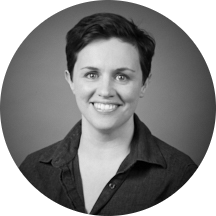 My research focuses on developmental Speech Sound Disorders. I have a particular interest in Visual Biofeedback, that is, technologies which can be used to image the articulators (principally the tongue) moving when we speak. My research has focused both on electropalatogrpahy (EPG) and ultrasound tongue imaging (UTI) as two of the main techniques which provide both ways of measuring tongue movement and of allowing children with speech sound disorders a method of using real-time visual biofeedback of their own tongue movements to modify incorrect articulations and therefore improve their speech.
Current projects include clinical studies looking the efficacy of visual biofeedback in children with persistent speech sound disorders and cleft lip and palate and assessment of speech disorders using ultrasound. At the theoretical level I am interested in the underlying nature of persistent speech sound disorder, especially with regards to theories which implicate the speech motor control system. I am interested in speech motor control in children with both primary speech sound disorders and those with other diagnoses including Down syndrome, autism and cleft lip and palate.
My research focuses on developmental Speech Sound Disorders. I have a particular interest in Visual Biofeedback, that is, technologies which can be used to image the articulators (principally the tongue) moving when we speak. My research has focused both on electropalatogrpahy (EPG) and ultrasound tongue imaging (UTI) as two of the main techniques which provide both ways of measuring tongue movement and of allowing children with speech sound disorders a method of using real-time visual biofeedback of their own tongue movements to modify incorrect articulations and therefore improve their speech.
Current projects include clinical studies looking the efficacy of visual biofeedback in children with persistent speech sound disorders and cleft lip and palate and assessment of speech disorders using ultrasound. At the theoretical level I am interested in the underlying nature of persistent speech sound disorder, especially with regards to theories which implicate the speech motor control system. I am interested in speech motor control in children with both primary speech sound disorders and those with other diagnoses including Down syndrome, autism and cleft lip and palate.
Prof. Keith Downing
NTNU, NORWAY /
 Keith's research is in Artificial Intelligence (AI) and Artificial Life (ALife), with an additional focus on Computational Neuroscience.
Keith works with Bio-Inspired approaches to Artificial Intelligence (AI), an area at the intersection of several fields: AI, Artificial Life (ALife), Computational Neuroscience, and Cognitive Science. His main interest is in the simulated evolution of neural networks, which, again, lies between two main research disciplines: Evolutionary Algorithms (EAs) and Artificial Neural Networks (ANNs). He is currently finishing up his first book, "Intelligence Emerging", to be published by MIT Press in 2015.
Keith teaches several of NTNU's AI classes, with contributions varying from full responsibility to a few lectures each semester. These classes include: Introductory AI, AI Programming, and Subsymbolic AI Methods, along with less-frequent lectures in Machine Learning and AI Methods.
Keith's research is in Artificial Intelligence (AI) and Artificial Life (ALife), with an additional focus on Computational Neuroscience.
Keith works with Bio-Inspired approaches to Artificial Intelligence (AI), an area at the intersection of several fields: AI, Artificial Life (ALife), Computational Neuroscience, and Cognitive Science. His main interest is in the simulated evolution of neural networks, which, again, lies between two main research disciplines: Evolutionary Algorithms (EAs) and Artificial Neural Networks (ANNs). He is currently finishing up his first book, "Intelligence Emerging", to be published by MIT Press in 2015.
Keith teaches several of NTNU's AI classes, with contributions varying from full responsibility to a few lectures each semester. These classes include: Introductory AI, AI Programming, and Subsymbolic AI Methods, along with less-frequent lectures in Machine Learning and AI Methods.
Prof. Thomas Eiter
Vienna University of Technology, AUSTRIA /
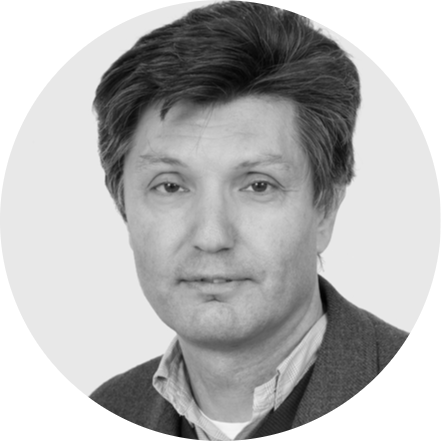 Thomas Eiter, born 1966, is a full professor in the Computer Science Department of Technische Universit
¨at Wien (since 1998), Austria, where he heads the KBS Group. Before (1996-1998), he was an associate
professor of Computer Science at the University of Giessen, Germany. Dr. Eiter’s research interests include
knowledge representation, logic programming, knowledge-based agents, and complexity in AI. He is
a coauthor of the book “Heterogeneous Agent Systems” that emerged from the multi-national IMPACT project on a platform for declarative agent programming. The results of IMPACT are published in several journals (Artificial Intelligence, e.g., JACM, ACM Trans. on Computational Logic, and IEEE Intelligent Systems). Dr. Eiter has more than hundred publications, a number of which appeared in top journals (including Artificial Intelligence, JACM, JCSS, TODS, TKDE...) and conferences (IJCAI, AAAI, PODS, KR,...), and was involved in several national and international research projects. He was on the program committee of many conferences including PODS, LICS, ICMAS, KR, and is general co-chair of the 2001 Joint International German/Austrian Conference on Artificial Intelligence (KI 2001), and the 2001 Conference on Logic Programming and Nonmonotonic Reasoning (LPNMR’01). Furthermore, he is associate editor of the Journal of Artificial Intelligence Research (JAIR) and the IEEE Transactions on Knowledge and Data Engineering (TKDE).
Thomas Eiter, born 1966, is a full professor in the Computer Science Department of Technische Universit
¨at Wien (since 1998), Austria, where he heads the KBS Group. Before (1996-1998), he was an associate
professor of Computer Science at the University of Giessen, Germany. Dr. Eiter’s research interests include
knowledge representation, logic programming, knowledge-based agents, and complexity in AI. He is
a coauthor of the book “Heterogeneous Agent Systems” that emerged from the multi-national IMPACT project on a platform for declarative agent programming. The results of IMPACT are published in several journals (Artificial Intelligence, e.g., JACM, ACM Trans. on Computational Logic, and IEEE Intelligent Systems). Dr. Eiter has more than hundred publications, a number of which appeared in top journals (including Artificial Intelligence, JACM, JCSS, TODS, TKDE...) and conferences (IJCAI, AAAI, PODS, KR,...), and was involved in several national and international research projects. He was on the program committee of many conferences including PODS, LICS, ICMAS, KR, and is general co-chair of the 2001 Joint International German/Austrian Conference on Artificial Intelligence (KI 2001), and the 2001 Conference on Logic Programming and Nonmonotonic Reasoning (LPNMR’01). Furthermore, he is associate editor of the Journal of Artificial Intelligence Research (JAIR) and the IEEE Transactions on Knowledge and Data Engineering (TKDE).
Dr. Paul Hemeren
University of Skövde, SWEDEN /
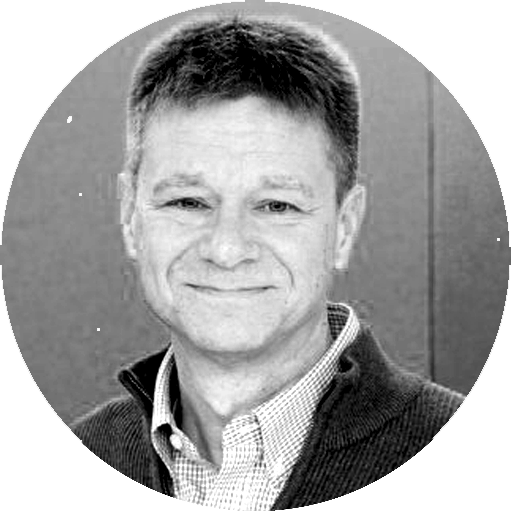 Paul Hemeren is the Head of the School of Informatics at the University of Skövde. He received his PhD in cognitive science from Lund University in Sweden. His research topics include biological motion perception, attention and categorization. The primary research questions addressed in his research concern the role of human kinematics in predicting human intentions. Within the context of applied perception, he and his colleagues have studied the critical movement parameters of cyclists that observers use to predict the intention of cyclists in traffic. Another aspect of action and intention recognition concerns the communicative (social) nature of human gestures. Current research findings from his group have revealed the categorical distinctions that observers tend to make when viewing social and non-social human gestures presented as point-light displays. A further newly started application of these findings is within the area of human-robot interaction and the development of artificial systems that can recognize human actions and intentions using kinematic information. Dr. Hemeren has been a reviewer for Accident Analysis and Prevention, Journal of Safety Research, IEEE Transactions on Cognitive and Developmental Systems and Topics in Cognitive Science among others.
Paul Hemeren is the Head of the School of Informatics at the University of Skövde. He received his PhD in cognitive science from Lund University in Sweden. His research topics include biological motion perception, attention and categorization. The primary research questions addressed in his research concern the role of human kinematics in predicting human intentions. Within the context of applied perception, he and his colleagues have studied the critical movement parameters of cyclists that observers use to predict the intention of cyclists in traffic. Another aspect of action and intention recognition concerns the communicative (social) nature of human gestures. Current research findings from his group have revealed the categorical distinctions that observers tend to make when viewing social and non-social human gestures presented as point-light displays. A further newly started application of these findings is within the area of human-robot interaction and the development of artificial systems that can recognize human actions and intentions using kinematic information. Dr. Hemeren has been a reviewer for Accident Analysis and Prevention, Journal of Safety Research, IEEE Transactions on Cognitive and Developmental Systems and Topics in Cognitive Science among others.
Prof. Árni Kristjánsson
University of Iceland, ICELAND /
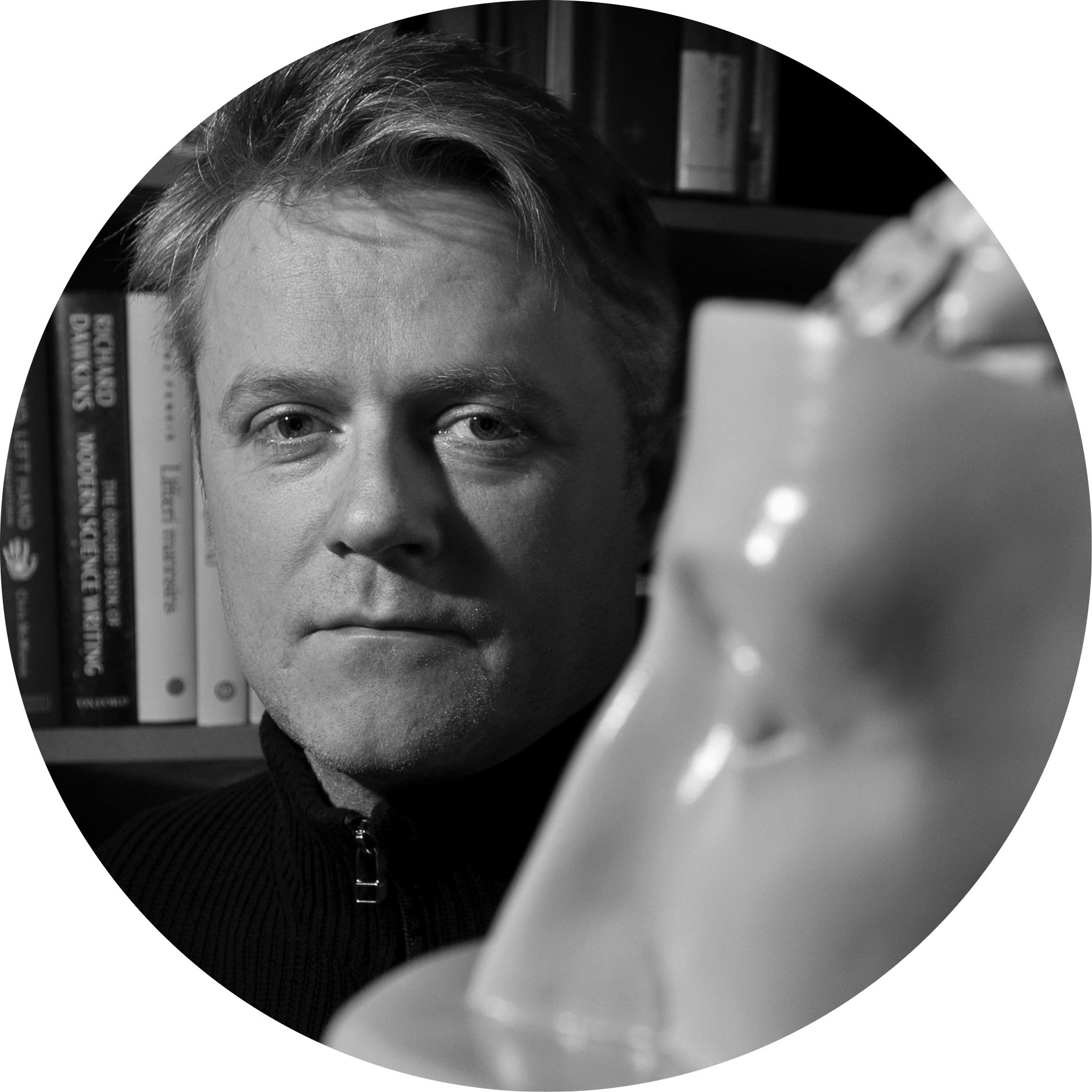 My research focuses on various aspects of human visual perception, such as visual attention and eye movements, how representations of the visual world are formed, visual foraging, and the influence of perceptual history on perception in the present. I mainly use psychophysical methods to answer these questions, but members of my lab and I are also involved in eye-tracking studies, neuroimaging, neuropsychological work, cognitive development studies, and clinical psychology.
I received my Ph.D. from Harvard University in 2002, and worked as Honorary Research Fellow at the Institute of Cognitive Neuroscience at UCL from 2002-2004. From 2004 I have had a position at the University of Iceland.
My research focuses on various aspects of human visual perception, such as visual attention and eye movements, how representations of the visual world are formed, visual foraging, and the influence of perceptual history on perception in the present. I mainly use psychophysical methods to answer these questions, but members of my lab and I are also involved in eye-tracking studies, neuroimaging, neuropsychological work, cognitive development studies, and clinical psychology.
I received my Ph.D. from Harvard University in 2002, and worked as Honorary Research Fellow at the Institute of Cognitive Neuroscience at UCL from 2002-2004. From 2004 I have had a position at the University of Iceland.
Prof. Daniel Levin
Vanderbilt University, UNITED STATES /
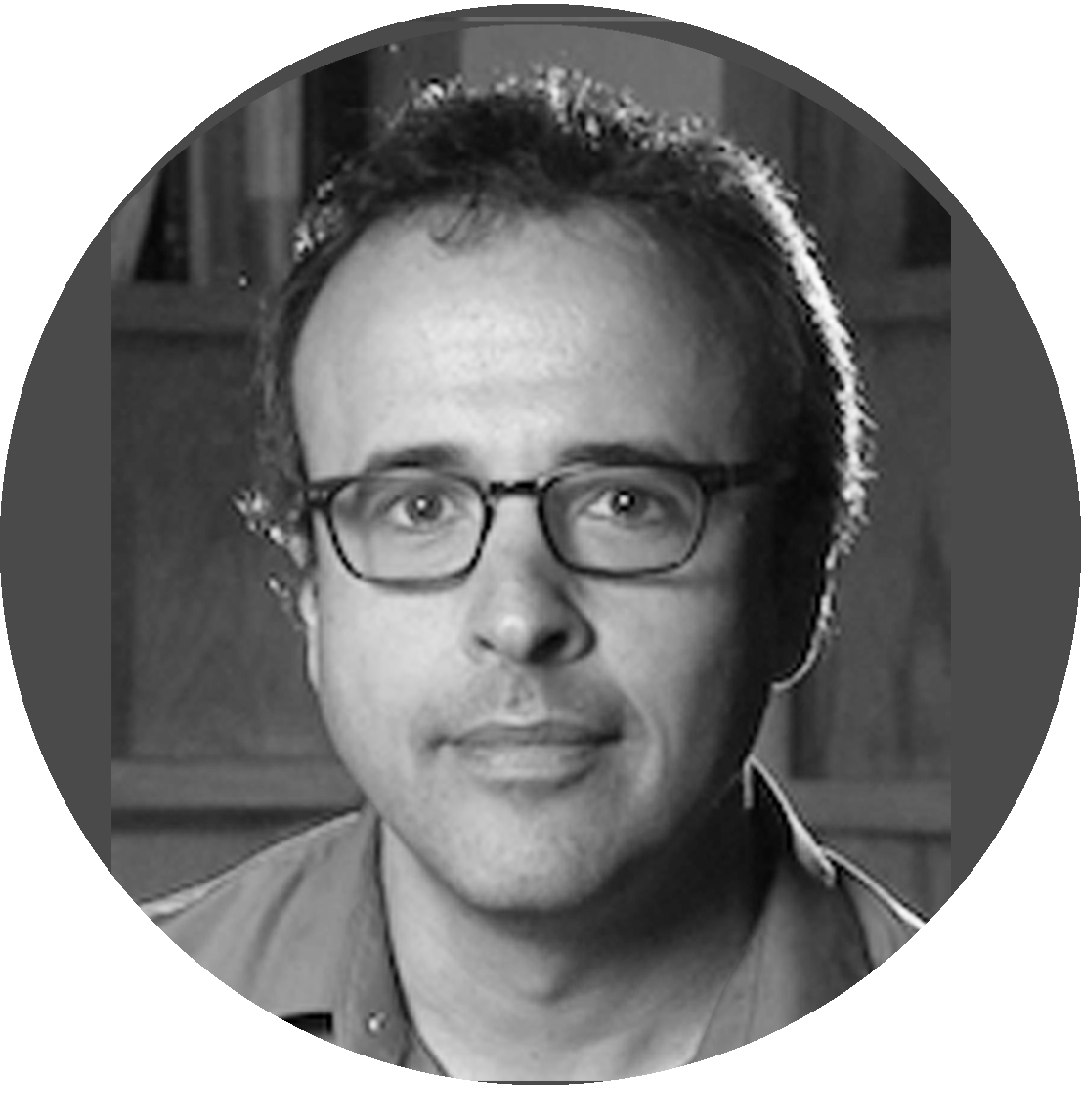 Research in the Levin lab is focused on the interface between knowledge and visual perception. To this end, we have been exploring the concepts associated with a variety of object categories,
and the knowledge that drives visual selection during scene and event perception. Some of our research explores how knowledge and other basic cognitive constraints affect scene and
event perception. For example, we are currently exploring how people perceive the sequence of natural visual events, and how they represent space while viewing films.
Other work explores visual attention, eye movements, and learning in multimedia settings such as screen-captured instructional videos. In a related line of research,
we are exploring adults' and childrens' concepts about agency, and testing how these concepts affect event perception, human-computer interaction, and learning from
agent-based tutoring systems. This line of research represents an interdisciplinary collaboration with our lab, Meg Saylor's lab (Cognitive Development), and labs in
engineering (Gautam Biswas), and has recently been supported by grants from the NSF. I received my BA from Reed College in 1990, and my Ph.D. at Cornell University in 1997,
then moved to a faculty position Kent State University. Starting in 2003, I have been here at Vanderbilt where I am Professor of Psychology in the Peabody's department of
Psychology and Human Development.
Research in the Levin lab is focused on the interface between knowledge and visual perception. To this end, we have been exploring the concepts associated with a variety of object categories,
and the knowledge that drives visual selection during scene and event perception. Some of our research explores how knowledge and other basic cognitive constraints affect scene and
event perception. For example, we are currently exploring how people perceive the sequence of natural visual events, and how they represent space while viewing films.
Other work explores visual attention, eye movements, and learning in multimedia settings such as screen-captured instructional videos. In a related line of research,
we are exploring adults' and childrens' concepts about agency, and testing how these concepts affect event perception, human-computer interaction, and learning from
agent-based tutoring systems. This line of research represents an interdisciplinary collaboration with our lab, Meg Saylor's lab (Cognitive Development), and labs in
engineering (Gautam Biswas), and has recently been supported by grants from the NSF. I received my BA from Reed College in 1990, and my Ph.D. at Cornell University in 1997,
then moved to a faculty position Kent State University. Starting in 2003, I have been here at Vanderbilt where I am Professor of Psychology in the Peabody's department of
Psychology and Human Development.
Prof. Asli Özyürek
Radboud University, NETHERLANDS /
 Asli Ozyurek is a full Professor at the Center For Language Studies (Faculty of Arts) and the Donders Institute for Brain, Cognition and Behavior (Faculty of Social Sciences) at
Radboud University and the Director of the Multimodal Language and Cognition lab. Asli Özyürek's research in general investigates the relations between cognition, language, communication and development.
She is interested in embodied and situated approaches to language and in particular to what extent our knowledge and use of bodily actions interact with language, its processing and learning.
Asli Özyürek investigates this question in two domains of human communicative behavior in which body and language are closely related:
A) gestures that speakers use along with speech
B) sign languages (established or emerging)
She has received NWO- VIDI grant (5-year), ASPASIA Award and ERC Starting Grant (5-year) and hosted three Marie-Curie Individual Postdoctoral Fellowships. She is also an elected (2019) member of Academia Europea. Currently Asli Özyürek is the PI of a 5-year NWO-VICI Grant for a research proposal entitled "Giving cognition a hand: Linking spatial cognition to linguistic expression in native and late learners of sign language and bimodal bilinguals" (until 2021).
Asli Ozyurek is a full Professor at the Center For Language Studies (Faculty of Arts) and the Donders Institute for Brain, Cognition and Behavior (Faculty of Social Sciences) at
Radboud University and the Director of the Multimodal Language and Cognition lab. Asli Özyürek's research in general investigates the relations between cognition, language, communication and development.
She is interested in embodied and situated approaches to language and in particular to what extent our knowledge and use of bodily actions interact with language, its processing and learning.
Asli Özyürek investigates this question in two domains of human communicative behavior in which body and language are closely related:
A) gestures that speakers use along with speech
B) sign languages (established or emerging)
She has received NWO- VIDI grant (5-year), ASPASIA Award and ERC Starting Grant (5-year) and hosted three Marie-Curie Individual Postdoctoral Fellowships. She is also an elected (2019) member of Academia Europea. Currently Asli Özyürek is the PI of a 5-year NWO-VICI Grant for a research proposal entitled "Giving cognition a hand: Linking spatial cognition to linguistic expression in native and late learners of sign language and bimodal bilinguals" (until 2021).
Prof. Alessandra Russo
Imperial College London,
UNITED KINGDOM /
 I am a Professor in Applied Computational Logic at the Department of Computing, Imperial College London, and academic member of the Distributed Software Engineering Section.
I lead the Structured and Probabilistic Knowledge Engineering (SPIKE) research group and my research interests are in the the areas of in Computational Logic, Logic-based Symbolic Learning, Probabilistic and Distributed Inference, and their applications to Intelligent Adaptive Systems, Security, Network Management, Distributed Control Systems for Sensor Networks, and System Biology.
I am a Professor in Applied Computational Logic at the Department of Computing, Imperial College London, and academic member of the Distributed Software Engineering Section.
I lead the Structured and Probabilistic Knowledge Engineering (SPIKE) research group and my research interests are in the the areas of in Computational Logic, Logic-based Symbolic Learning, Probabilistic and Distributed Inference, and their applications to Intelligent Adaptive Systems, Security, Network Management, Distributed Control Systems for Sensor Networks, and System Biology.
Prof. Barbara Tversky
Stanford University, and Columbia University, UNITED STATES /
 Barbara Tversky studied cognitive psychology at the University of Michigan, where she focused on the then neglected topic of spatial memory and imagery. The work continued and expanded at the Hebrew University in Jerusalem and Stanford University to include categorization, memory, cognitive maps, spatial mental models, spatial language and memory, eyewitness testimony, biased visual and verbal memory, HCI, design, diagrammatic thinking, gesture, event perception and cognition, and creativity. She is currently Professor of Psychology at Columbia Teachers College and Professor Emerita of Psychology at Stanford. She has received awards for teaching and for a computer laboratory for teaching cognitive psychology, is a fellow of the American Academy of Arts and Sciences, the American Psychological Society, the Cognitive Science Society, and the Russell Sage Foundation, and was elected to the Society of Experimental Psychology. She has served on the governing boards of many professional organizations, on the editorial boards of many journals, and on the organizing committees of nearly 100 international interdisciplinary conferences. She has enjoyed collaborations with linguists, philosophers, computer scientists, neuroscientists, biologists, chemists, engineers, architects, designers, and artists.
Barbara Tversky studied cognitive psychology at the University of Michigan, where she focused on the then neglected topic of spatial memory and imagery. The work continued and expanded at the Hebrew University in Jerusalem and Stanford University to include categorization, memory, cognitive maps, spatial mental models, spatial language and memory, eyewitness testimony, biased visual and verbal memory, HCI, design, diagrammatic thinking, gesture, event perception and cognition, and creativity. She is currently Professor of Psychology at Columbia Teachers College and Professor Emerita of Psychology at Stanford. She has received awards for teaching and for a computer laboratory for teaching cognitive psychology, is a fellow of the American Academy of Arts and Sciences, the American Psychological Society, the Cognitive Science Society, and the Russell Sage Foundation, and was elected to the Society of Experimental Psychology. She has served on the governing boards of many professional organizations, on the editorial boards of many journals, and on the organizing committees of nearly 100 international interdisciplinary conferences. She has enjoyed collaborations with linguists, philosophers, computer scientists, neuroscientists, biologists, chemists, engineers, architects, designers, and artists.
Prof. David Whitney
UC Berkeley, UNITED STATES /
 My lab investigates visual perception, attention, and visually guided action. Specific areas of interest include motion perception, perceptual localization, object and face recognition, scene perception, and visuomotor behavior. Using a variety of techniques, including psychophysics, functional neuroimaging, and transcranial magnetic stimulation, we study visual and visuomotor function, with the goal of understanding the perceptual, cognitive, and neural mechanisms that allow humans to perceive and interact with objects in a dynamic world.
My lab investigates visual perception, attention, and visually guided action. Specific areas of interest include motion perception, perceptual localization, object and face recognition, scene perception, and visuomotor behavior. Using a variety of techniques, including psychophysics, functional neuroimaging, and transcranial magnetic stimulation, we study visual and visuomotor function, with the goal of understanding the perceptual, cognitive, and neural mechanisms that allow humans to perceive and interact with objects in a dynamic world.
